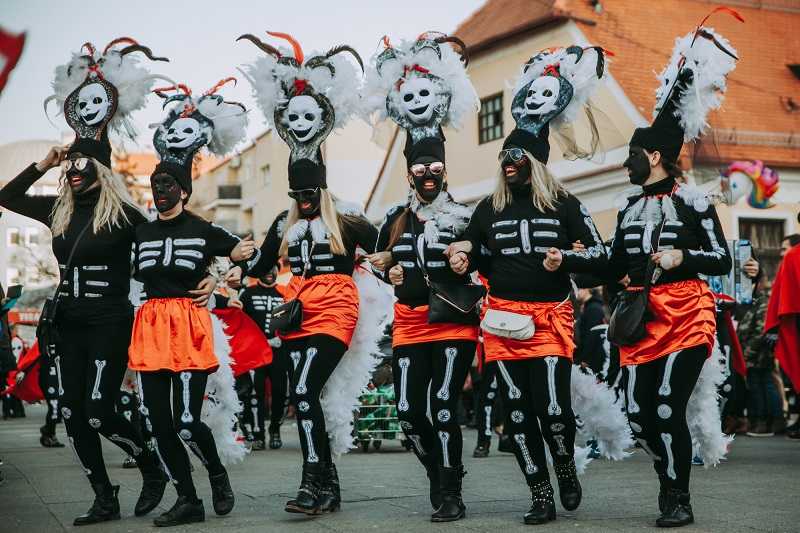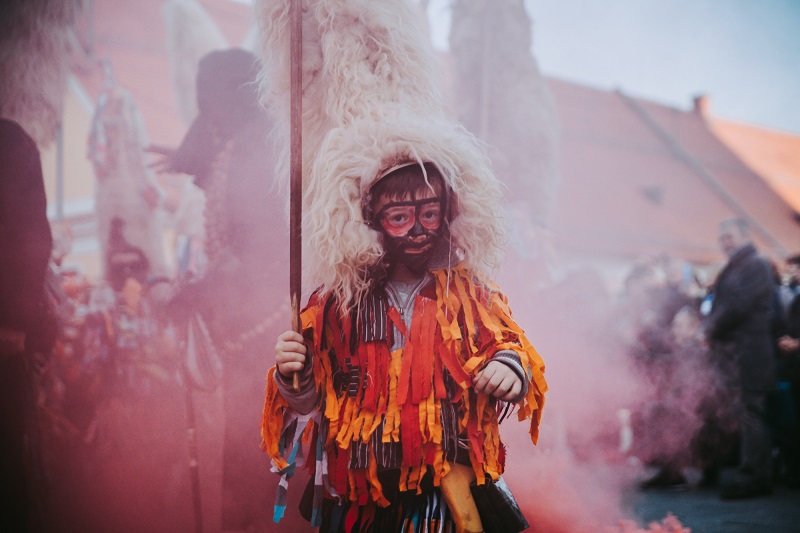From history
Carnival customs of the town of Đakovo and its surrounding Đakovo region date far back into the past. At the time of the carnival, its masked participants bušari would visit people’s homes, sing songs, and pull pranks on their hosts, receiving gifts in return. Even though the origins of this tradition can be traced back to European antiquity, medieval or renaissance customs, which are in turn based on Greek Dionysia and Roman Saturnalia, as well as on Christian pre-Lent customs, their exact origin in this area is difficult to pinpoint. Carnival customs usually symbolize victory over the winter, hardships, shortages and all other troubles embodied in the puppet that then gets destroyed.
Bušari of Đakovo today
Bušari of Đakovo (Đakovo Carnival) is about more than just entertainment: it is a cultural event presenting Lent traditions, customs, food and lifestyles, keeping them alive and ensuring that they are not forgotten. About 3,000 participants from different regions gather for this event, which typically lasts for several days and attracts some 15,000 spectators. The event includes a Gastro Fest along with the Carnival Ride and the Carnival Procession as the central event. The “transition of power” ceremony is held in front of the Town Hall: the Mayor surrenders the keys to the city to the bušari, marking the establishment of Bušarska republika (Carnival Republic). The masquerade ball is the final attraction and culmination of the event.

To the best - awards!
Prizes are awarded to the best masks of the event in the following categories: nursery schools, pre-schoolers, school students, adults, the most cheerful group, the most original men’s mask, the most original women’s mask, and the best traditional mask for adults and children. The event combines rituals, customs, festivities and oral traditions, telling tales of the community’s history and class differences, as well as economic circumstances. Bušari of Đakovo keeps traditions alive and promotes them through the participation of many groups presenting traditional masks and customs, which are an essential part of the event.
Bušari of Đakovo, organised by the Town of Đakovo and its Tourist Board, is the largest carnival in Eastern Croatia in terms of attendance, and is a member of the Croatian Association of Carnival Towns.
